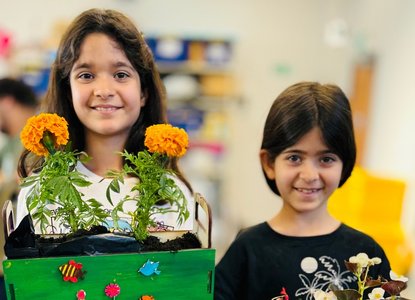The Centre for Sustainable Energy (CSE) was awarded £6,000 to strengthen the integration of diversity, equity and inclusion (DEI) within their Planning Locally to Address the Climate Emergency (PLACE) project. The funding enabled CSE to work with Jackie Christie to embed DEI more systematically into how they design and deliver community engagement, ensuring that a wider range of voices and experiences are included in local climate action.
The Centre for Sustainable Energy (CSE) works with people and organisations across the UK to tackle climate change and end the suffering caused by cold homes. They support communities, local councils, and national organisations to develop practical responses to the climate emergency, combining technical expertise with a commitment to fairness and inclusion.
About the work supported
- The funding was used to build CSE’s internal capacity and confidence to apply diversity, equity and inclusion principles throughout the PLACE project.
- Working with an external consultant, the team explored how to make community engagement processes more inclusive and reflective of different lived experiences.
- This included developing practical roadmaps with five pilot organisations, creating space for staff to reflect and learn together, and introducing tools to help ensure that equity and inclusion are embedded at every stage of project design and delivery.
Reflections from Leah Bromley, Project Manager, Centre for Sustainable Energy
What did the DEI support help you to do?
The support enabled us to introduce equity, diversity and inclusion more systematically into our Planning Locally to Address the Climate Emergency (PLACE) project. We were able to raise awareness of why EDI matters in community engagement, create practical roadmaps with our five pilot organisations, and strengthen the skills and confidence of our own team to hold space for difficult conversations which is crucial to embedding DEI at any stage.
What difference did it make to you as an organisation?
Our consultant gave us a stronger foundation to make our community engagement more inclusive and effective. It has also helped us think more deeply about how we embed inclusion across our organisation, not just within individual projects. I’ve personally learned a lot from our consultant's approach, and I’ve incorporated more inclusive tools and frameworks into my own project management process.
It was a really welcoming space to talk about difficult things, which is so important in DEI work. Without that, people can feel guarded or even threatened. The consultant created that space really well, and once that initial rapport was built, the conversations could really open up.
Having a consultant on board gave us the confidence to look at things differently and try new approaches. For me personally, it’s changed the way I work. [Our consultant] shared a structured reflective approach that I now use whenever I set up a new project, helping me consider the perspectives and needs of everyone involved. They’re not complicated, but the way they’re framed really helps you dig deeper into who is included and who isn’t. Using them has helped us anticipate issues early on and adapt our plans, whether that’s how we run a workshop or how we engage different groups. It’s become a standard part of our project planning, and it’s shifted the way our team thinks about inclusion.
What were some of the challenges you faced in sustaining the work?
A key challenge is ensuring that DEI is treated as an ongoing process, with momentum between and across projects. Embedding change takes time, especially when internal teams are at different places in their DEI journeys and when we are working with organisations that have different capacities and contexts. The wider impact of funding constraints means we have to continue to look for ways to keep momentum in a sustainable way to ensure that DEI becomes part of everyday practice for both our partners and our own team.
What learning would you like to share with other organisations?
I’d say don’t be too attached to what you think the outcome will be, because you often don’t know until you start what it’s going to bring up. Having flexibility is key: being able to adapt if unexpected things emerge rather than sticking rigidly to an original plan. For us, our provider’s support ended up looking quite different from what we’d first imagined, because after the initial workshop lots of different needs surfaced. She worked with us iteratively, sometimes through one-to-one sessions, other times in group planning meetings, and that flexibility was invaluable.
It’s also really important to find someone who understands your organisation and can create a space where people feel comfortable. Clarify what you need and check that the consultant’s approach aligns with that. Finally, think about the long-term: DEI work builds momentum quickly, but it can fade without accountability. Finding ways to have ongoing check-ins, or frameworks to revisit progress regularly, can help keep the work alive over time.


